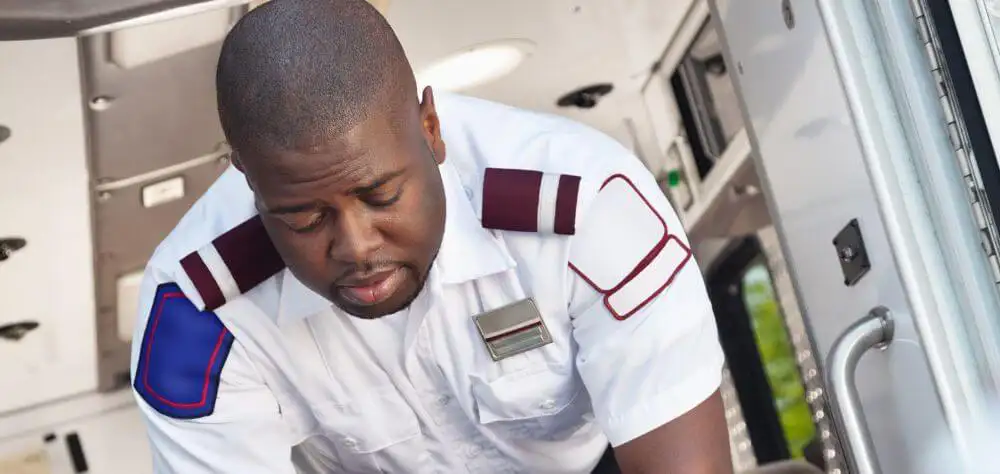How to Become a Physician Assistant: A Complete Career Guide
How to become a physician assistant is a question many aspiring healthcare professionals ask, and it’s easy to see why. Physician Assistants (PAs) enjoy one of the most rewarding and in-demand careers in healthcare, blending advanced medical knowledge with compassionate, patient-centered care. As key members of healthcare teams, PAs diagnose illnesses, develop treatment plans, and improve patients’ lives every day.
The path to becoming a PA is structured yet offers flexibility for those with the drive to succeed. From earning the right academic credentials to completing hands-on training, every step builds toward a fulfilling career. With the right preparation and commitment, you can confidently join this dynamic, growing profession. Let’s explore how to get started!
Exploring the Role of Physician Assistants in Modern Medicine
Physician Assistants (PAs) are licensed medical professionals who play a critical role in healthcare. Working under physician supervision, they diagnose, treat, and manage patient care, blending advanced medical expertise with compassionate support to improve patient outcomes.
Overview of the Profession
Physician Assistants are highly trained healthcare providers who work closely with physicians to deliver comprehensive medical care.
Licensed Professionals: PAs are licensed to diagnose illnesses, develop treatment plans, and manage patient care across various healthcare settings.
Versatile Roles: They work in hospitals, clinics, and private practices, often serving as a primary point of care for patients.
Key Collaborators: While PAs operate with autonomy, they collaborate with supervising physicians to ensure the best outcomes for their patients.
Responsibilities
The day-to-day tasks of a Physician Assistant are as varied as they are impactful.
- Comprehensive Care: From performing physical exams to diagnosing illnesses and prescribing medications, PAs are deeply involved in patient health.
- Hands-On Procedures: They assist in surgeries, perform diagnostic tests, and manage treatment plans with precision.
- Patient Advocacy: Educating patients about their conditions and treatment options is central to their role.
- Specialized Expertise: PAs have the flexibility to work in fields like orthopedics, dermatology, or emergency medicine, adapting their skills to diverse healthcare needs.
Every task a PA undertakes directly improves patient outcomes and healthcare delivery.
Why Become a PA?
Few careers offer the blend of impact, flexibility, and demand that the PA profession does.
Booming Demand: According to the Bureau of Labor Statistics, PA employment is projected to grow by 28% from 2023 to 2033, making it one of the fastest-growing healthcare roles.
Strong Career Outlook: Physician Assistants consistently rank among the top careers, thanks to strong job security, high earning potential, and the meaningful impact they have on patient care.
Unmatched Flexibility: With the ability to shift specialties without additional certifications, PAs can tailor their careers to their interests.
Becoming a PA means stepping into a role that’s both personally rewarding and critical to the future of healthcare.
6 Steps to Becoming a Physician Assistant
Becoming a Physician Assistant combines academic achievement, hands-on experience, and professional dedication. It’s a journey that requires thoughtful planning and a commitment to patient-centered care. Here are six essential steps to help you start your path toward this rewarding career.
Step 1: Earn a Bachelor’s Degree
To start your PA journey, you’ll need a bachelor’s degree with a strong foundation in health sciences.
Recommended Majors: Biology, chemistry, or health sciences are ideal for building a robust academic base.
Focus on Prerequisites: Courses like anatomy, physiology, and microbiology are critical for PA program eligibility. Excelling in these will set you up for success.
Step 2: Gain Healthcare Experience
Hands-on experience in patient care is a must for aspiring PAs and is often required for program admissions.
- Work in Healthcare Roles: Consider positions like medical assistant, EMT, phlebotomist, or scribe to build direct patient care experience.
- Competitive Edge: Most PA programs recommend accumulating at least 1,000 to 4,000 hours of healthcare experience.
Step 3: Take the GRE (or CASPer if Required)
Many PA programs require standardized tests as part of their admissions process. The GRE is a common requirement, testing your verbal reasoning, quantitative skills, and analytical writing—key competencies for succeeding in rigorous academic environments. Some programs also require the CASPer test, an online assessment designed to evaluate your interpersonal skills and decision-making abilities.
Step 4: Apply to PA Programs
After gaining the necessary experience and completing the required academic courses, it’s time to apply to accredited PA programs. At SCU, our MSPA program offers a unique blend of online interactive learning and on-campus training, providing the flexibility and hands-on experience needed to succeed in this demanding phase.
- Prepare Your Application: Ensure your application includes a strong personal statement, recommendation letters, and a detailed resume that highlights your healthcare experience and academic achievements.
- Be Selective: Research programs to find the best fit for your career goals, location, and educational needs.
Step 5: Complete a PA Program
Completing a PA program is one of the most challenging and rewarding phases of the journey. PA programs include intensive didactic learning, where you’ll dive into advanced medical concepts, and hands-on clinical rotations across multiple specialties like surgery, pediatrics, and internal medicine. These experiences are designed to prepare you for real-world patient care.
Step 6: Pass the PANCE and Obtain Licensure
The Physician Assistant National Certifying Exam (PANCE) is the final hurdle before you can officially practice as a PA. This rigorous exam assesses your knowledge of medical and surgical care, ensuring you’re fully prepared for the challenges of the profession. After passing the PANCE, you can apply for state licensure, a critical step that allows you to begin practicing. Licensure ensures you meet the standards necessary to provide safe and effective care to patients, marking the culmination of your hard work and dedication.
SCU’s MSMS Program: Your Gateway to PA School
SCU’s Master’s of Science in Medical Science program (MSMS) offers more than just academic preparation—it’s your opportunity to gain a competitive edge for PA school. With a fully online or blended format, personalized support, and unique benefits like guaranteed interview opportunities, we’re here to help you succeed.
Build a Strong Foundation in Medical Science
The MSMS program at SCU is designed to strengthen your knowledge in key areas like anatomy, physiology, and clinical skills. This comprehensive foundation not only prepares you for the challenges of PA school but also helps you excel academically. By focusing on the same rigorous content as a first-year medical program, the MSMS program ensures you’re fully equipped to handle the demands of your next educational step.
Guaranteed PA Program Interviews
One of the most exciting benefits of our MSMS program is the opportunity for guaranteed interviews for our MSPA program. Graduates who meet specific academic and program criteria gain a significant edge in the admissions process, streamlining their path to PA school. This advantage removes much of the stress and uncertainty, giving you the chance to focus on preparing for your future career.
Flexible, Online, and Blended Learning Options
We understand that life doesn’t pause when you’re pursuing your goals, which is why we offer flexibility through our MSMS program. Choose between a fully online format or an 11-month blended option that combines the convenience of online learning with on-campus interactions.
- Study on Your Schedule: Balance your studies with personal and professional commitments in a way that works for you.
- Comprehensive Learning Experience: Access engaging course materials, connect with expert faculty, and enjoy interactive tools from anywhere.
- Blended Flexibility: For those who prefer in-person interactions, our blended model offers the opportunity to connect on campus while maintaining the ease of online coursework.
Our MSMS program is designed to meet you where you are, providing the quality and flexibility you need to succeed.
Supportive Learning Environment
At SCU, your success is personal to us. Small class sizes mean you’ll have direct access to faculty who are invested in your progress. And personalized mentorship provides you with the guidance needed to navigate challenges and reach your goals.
You’re never alone in this journey. With SCU, you’ll have the resources and encouragement to excel.
Mastering Your PA School Application: Tips for Success
Applying to PA school doesn’t have to feel overwhelming. With thoughtful preparation and clear strategies, you can confidently navigate the admissions process. Let’s explore how to highlight your strengths and stand out as a top candidate.
Craft a Standout Personal Statement
Your personal statement is your chance to tell your story and connect with admissions committees. Reflect on the key moments that inspired you to become a PA and articulate your passion for healthcare. Whether it’s an experience working in patient care or a personal connection that fueled your journey, let it shine through in your writing.
Be specific and use examples that demonstrate your growth and readiness for the role. Admissions committees value authenticity and clarity, so take the time to refine your statement and ensure it represents your best self. Seeking feedback from mentors or advisors can help you polish your message.
Secure Strong Letters of Recommendation
The right recommendation letters can elevate your application by providing a professional endorsement of your abilities.
- Choose strategically: Pick individuals who know you well and can attest to your academic achievements, clinical skills, or work ethic. Professors, supervisors, and healthcare professionals make excellent choices.
- Provide context: Share your goals and key experiences with your recommenders so they can highlight specific strengths.
- Ask early: Giving your recommenders plenty of time ensures they can craft thoughtful and impactful letters.
Strong letters are a powerful testament to your potential and readiness for PA school.
Prepare for Interviews
The interview is your opportunity to demonstrate your passion, professionalism, and understanding of the PA role. Be prepared to discuss your motivations for becoming a PA and how your experiences have prepared you for this path. Thoughtful, authentic answers make a lasting impression.
Practice answering common questions with mentors or through mock interviews. This helps you refine your responses and gain confidence in presenting yourself. Be professional but genuine, allowing your personality to come through. Admissions committees are looking for candidates who are not only qualified but also driven and personable.
Take Charge of Your PA School Journey with SCU
Building a strong application is key when exploring how to become a physician assistant, and preparation makes all the difference. From crafting a personal statement that tells your story to securing impactful recommendation letters, every step helps showcase your unique strengths. With SCU’s MSMS program, we’re here to support you every step of the way.
Your journey toward a fulfilling PA career starts now. Explore our admissions requirements, apply now, and take the first step toward realizing your dream. With our resources and your passion, you’ll be equipped to stand out and succeed in this incredible profession.
FAQs
How to become a physician assistant if I’m changing careers?
Start by completing prerequisite courses like anatomy and microbiology. Gain hands-on healthcare experience and prepare for the GRE if required. Then apply to an accredited PA program to begin your journey toward this rewarding career.
How long does it take to become a PA?
It typically takes about six years: four for a bachelor’s degree and two for a PA program, which includes both classroom learning and clinical rotations.
Is healthcare experience necessary to apply to PA programs?
Yes, most programs require hands-on experience. Roles like EMT, medical assistant, or scribe are common ways to gain the hours needed, typically ranging from 2,000 to 4,000 hours depending on the program.
How much can I expect to earn as a PA?
The average salary for PAs in the United States is around $126,000 per year, though it varies based on location, experience, and specialty. In high-demand areas, earnings can be even higher.
What does a Physician Assistant’s job involve daily?
PAs perform physical exams, diagnose and treat illnesses, prescribe medications, and even assist in surgeries. They also educate patients about their health and may work in diverse settings like hospitals, clinics, or specialty practices.
Related Posts





